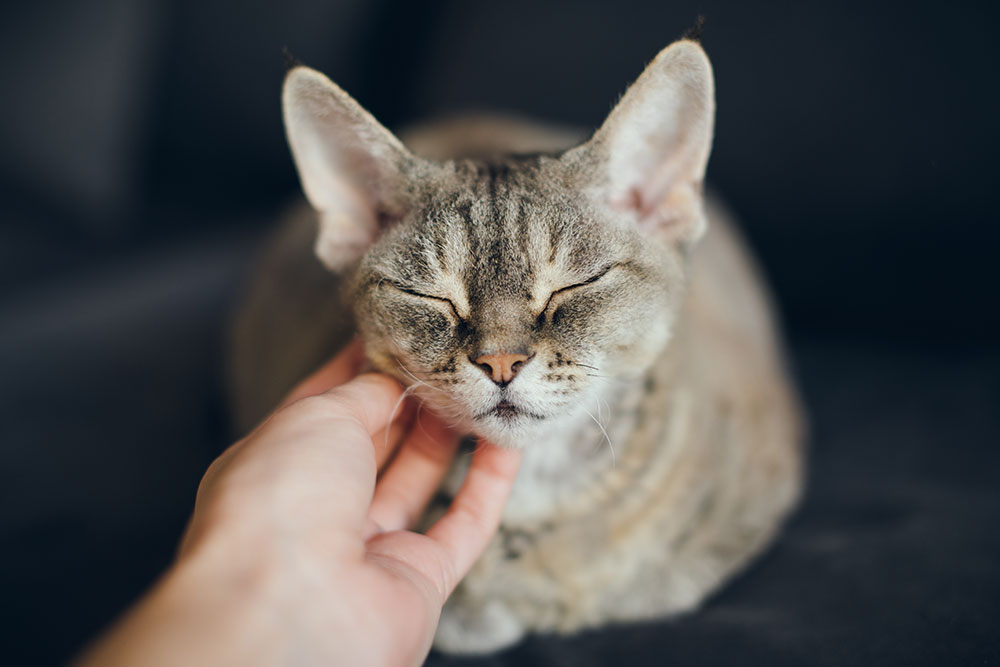Pet Anxiety and Stress in Northport
In the Northport community, the well-being of all family members, including pets, is highly valued. Recognizing signs of stress and anxiety in dogs and cats is crucial for their overall health and happiness. At Tidmore Veterinary Hospital, we emphasize the importance of mental health for pets as much as physical health. By identifying and addressing these signs early, we can prevent more severe health issues and behavioral problems.
Signs of Stress in Dogs
Dogs communicate stress in various ways, which might not always be obvious. Key signs include:
- Excessive Barking or Howling: Increased vocalization, especially in patterns or when alone, can indicate anxiety. This behavior, if unchecked, may lead to strained relationships with neighbors or housing issues.
- Unusual Aggression: Sudden aggressive behavior in a normally gentle dog can signal distress, often stemming from fear or discomfort, and may lead to injuries if not managed.
- Pacing and Restlessness: Constant movement and inability to settle may suggest anxiety, leading to exhaustion and heightened stress over time.
- Destructive Behaviors: Chewing furniture or digging can be expressions of nervousness. Unaddressed, this may result in costly damage and health risks if harmful materials are ingested.
These behaviors often indicate underlying issues that might require professional help. Early behavioral modification strategies can significantly mitigate these risks.
Signs of Anxiety in Cats
Cats often exhibit stress differently than dogs, making it challenging to identify. Signs include:
- Hiding More Than Usual: While solitude is natural for cats, excessive hiding can be a warning sign, potentially leading to isolation and decreased social interactions.
- Excessive Grooming: Over-grooming to the point of bald patches is a common anxiety response, possibly leading to skin infections if untreated.
- Changes in Appetite or Weight: Significant changes may indicate stress or other health issues. Reduced appetite can result in malnutrition, while weight gain can lead to obesity-related problems.
- Avoidance of the Litter Box: A sudden change in litter box habits can signal stress, leading to hygiene issues and additional stress for the pet and owner.
Recognizing these behaviors as signs of anxiety can guide the provision of necessary care. A calm environment and routine can alleviate many symptoms.
Common Triggers of Anxiety and Stress in Pets
Pets can feel overwhelmed by certain situations. Common triggers include:
- Loud Noises: Thunderstorms or fireworks often cause acute stress reactions, potentially leading to long-term phobias if not managed.
- Changes in Environment: Moving to a new home or even rearranging furniture can disrupt a pet’s sense of security and routine.
- Separation Anxiety: Common in dogs, this occurs when a dog becomes anxious due to separation from their guardians, potentially resulting in destructive behavior and escape attempts, posing physical dangers.
For more information on separation anxiety in dogs, visit the ASPCA’s website.
Practical Steps to Help Your Anxious Pet
Creating a Safe and Comfortable Environment
Creating a tranquil home environment can significantly reduce your pet’s stress. Consider:
- Providing a quiet space for retreat, equipped with familiar objects and scents to promote comfort.
- Maintaining a consistent daily routine to minimize surprises, which helps establish predictability and reassurance for pets.
Behavioral Modifications and Training
Techniques like desensitization, where a pet is gradually exposed to stress-inducing stimuli, can be beneficial. Professional trainers can assist with personalizing strategies to fit individual pet needs.
When to Consider Professional Help
If anxiety symptoms persist or worsen, consulting a professional might be necessary. Learn about our services on our Services page.
For tips on reducing stress before a veterinary visit, check out CattleDog Publishing.
Veterinary Solutions for Managing Stress and Anxiety
Diagnosis and Treatment
At Tidmore Veterinary Hospital, we begin with a thorough examination to diagnose specific anxiety triggers in your pet. Our approach may include:
- Behavioral Assessments: Identifying patterns and triggers to tailor interventions.
- Medications: Anti-anxiety medications or sedatives may be prescribed, depending on severity.
- Supplements and Diet: Nutritional adjustments can play a role in managing anxiety; omega-3 fatty acids, for example, may have calming effects.
- Pheromone Diffusers and Calming Collars: These non-invasive options help soothe pets by mimicking natural calming pheromones.
Prevention and Long-term Management
Preventing anxiety involves ongoing care and management. Regular check-ups and open communication with your veterinarian are crucial. Engage in regular mental and physical exercise with your pet to foster resilience against stress.

For a detailed consultation, visit our Request an Appointment page.
How Tidmore Veterinary Hospital Supports Your Pet’s Mental Health
Our hospital is proud to be AAHA accredited, meeting the highest standards in veterinary care. We also offer holistic approaches to support your pet’s mental well-being, detailed on our Chi Institute page.
FAQ: Common Questions About Pet Stress and Anxiety
Q: How can I tell if my pet’s anxiety is an emergency?
A: Signs of an anxiety emergency include self-harm, such as excessive chewing or scratching, severe aggression, or if your pet refuses food and water for an extended period. These require immediate veterinary attention.
Q: Are there natural remedies for pet anxiety?
A: Natural remedies like pheromone diffusers, herbal supplements, and consistent routines can aid in managing anxiety. However, consult a veterinarian before starting any new treatment.








Leave A Comment